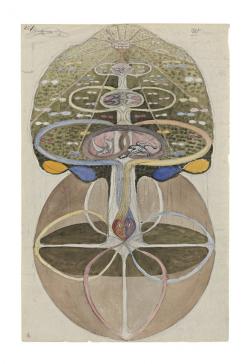The Department III Colloquia are regular meetings for the department members to discuss our work in progress, to comment, and to help each other in our writing process. The format is a discussion of a pre-circulated paper, led by an introductory comment by an external discussant.

HaK133, Painting by Hilma af Klimt, courtesy of The Hilma af Klint Foundation _ Photo_Moderna Museet-Stockholm
Dept. III
Events Archive
Director Dagmar Schäfer
T +49 30 22667 151
